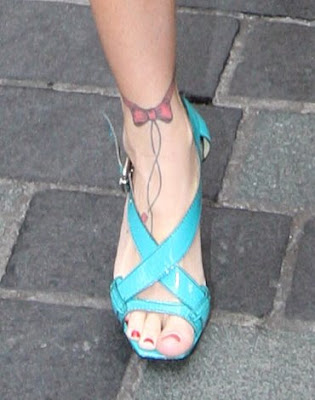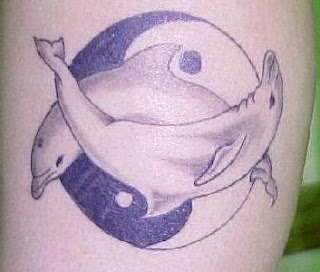ankle foot tattoos
ankle foot tattoo
Feminine Ankle Foot Tattoo Pattern for New Year
ankle foot tattoo designs
Girly Tattoos – Cute Feminine Ankle, Foot
A girl's foot tattoo can be a great choice. Although there are a few things
foot tattoo ideas
cherry blossom ankle and foot tattoo. Posted by Steve 'A' on August 2nd,
Tattoo Aftercare Picture Star Foot Tattoos – Struggling to Find Good Tattoo
cherry blossom ankle and foot tattoo. Posted by Steve 'A' on August 2nd,
ankle foot tattoos
small foot tattoo
Popular foot tattoos include toe rings, ankle bands, and small designs that
ankle foot tattoo designs
Cute feminin, sexy foot tattoo for girls
Three ankle tattoos pictured together. Foot Tattoos For Women
View our selection of hand, ankle and foot tattoos online …
Art of Body Tattoo - popular Tattoo of th world
A tattoo is a permanent marking made by inserting ink into the layers of skin to change the pigment for decorative or other reasons. Tattoos on humans are a type of decorative body modification, while tattoos on animals are most commonly used for identification or branding.
Tattooing has been practiced worldwide. The Ainu, the indigenous people of Japan, traditionally wore facial tattoos. Today one can find Berbers of Tamazgha (North Africa) and Maori of New Zealand with facial tattoos. Tattooing was widespread among Polynesian peoples and among certain tribal groups in the Philippines, Borneo, Mentawai Islands, Africa, North America, South America, Mesoamerica, Europe, Japan, Cambodia, New Zealand and Micronesia. Despite some taboos surrounding tattooing, the art continues to be popular in many parts of the world.



Tattooing has been a Eurasian practice at least since Neolithic times. Ötzi the Iceman, dating from the fourth to fifth millennium BCE, was found in the Ötz valley in the Alps and had approximately 57 carbon tattoos consisting of simple dots and lines on his lower spine, behind his left knee, and on his right ankle. Other mummies bearing tattoos and dating from the end of the second millennium BC have been discovered, such as the Mummy of Amunet from Ancient Egypt and the mummies at Pazyryk on the Ukok Plateau.
Pre-Christian Germanic, Celtic and other central and northern European tribes were often heavily tattooed, according to surviving accounts. The Picts were famously tattooed (or scarified) with elaborate dark blue woad (or possibly copper for the blue tone) designs. Julius Caesar described these tattoos in Book V of his Gallic Wars (54 BCE).
Tattooing in Japan is thought to go back to the Paleolithic era, some ten thousand years ago.[citation needed] Various other cultures have had their own tattoo traditions, ranging from rubbing cuts and other wounds with ashes, to hand-pricking the skin to insert dyes.[citation needed
Tattooing in the Western world today has its origins in Polynesia, and in the discovery of tatau by eighteenth century explorers. The Polynesian practice became popular among European sailors, before spreading to Western societies generally
Tattooing has been practiced worldwide. The Ainu, the indigenous people of Japan, traditionally wore facial tattoos. Today one can find Berbers of Tamazgha (North Africa) and Maori of New Zealand with facial tattoos. Tattooing was widespread among Polynesian peoples and among certain tribal groups in the Philippines, Borneo, Mentawai Islands, Africa, North America, South America, Mesoamerica, Europe, Japan, Cambodia, New Zealand and Micronesia. Despite some taboos surrounding tattooing, the art continues to be popular in many parts of the world.



Tattooing has been a Eurasian practice at least since Neolithic times. Ötzi the Iceman, dating from the fourth to fifth millennium BCE, was found in the Ötz valley in the Alps and had approximately 57 carbon tattoos consisting of simple dots and lines on his lower spine, behind his left knee, and on his right ankle. Other mummies bearing tattoos and dating from the end of the second millennium BC have been discovered, such as the Mummy of Amunet from Ancient Egypt and the mummies at Pazyryk on the Ukok Plateau.
Pre-Christian Germanic, Celtic and other central and northern European tribes were often heavily tattooed, according to surviving accounts. The Picts were famously tattooed (or scarified) with elaborate dark blue woad (or possibly copper for the blue tone) designs. Julius Caesar described these tattoos in Book V of his Gallic Wars (54 BCE).
Tattooing in Japan is thought to go back to the Paleolithic era, some ten thousand years ago.[citation needed] Various other cultures have had their own tattoo traditions, ranging from rubbing cuts and other wounds with ashes, to hand-pricking the skin to insert dyes.[citation needed
Tattooing in the Western world today has its origins in Polynesia, and in the discovery of tatau by eighteenth century explorers. The Polynesian practice became popular among European sailors, before spreading to Western societies generally
Japanese Tattoo Design
Japanese Tattoo Design
Japanese people. From mafia symbols to clay burial figures featuring facial tattoos, tattoos have served many different purposes throughout time. “Iremuzi” is the Japanese word for traditional hand-poked tattoos. To create a permanent mark or tattoo, ink has to be inserted into the skin at a certain depth. Though modern tattooing uses a machine with automatic needles, ancient tattoo, and tattoos done in the ancient tradition, were created by poking a harkened object dipped in ink into the skin.
We would then create several options for the translation and sample designs. These hand-lettered designs by Master Takase are then scanned, documented and emailed to you along with a detailed explanation and links to on-line Japanese dictionaries and other independent resources. This way you know the translation is correct and we are happy to provide you with as much information so you are as happy with the translation as you are with the design.
Japanese people. From mafia symbols to clay burial figures featuring facial tattoos, tattoos have served many different purposes throughout time. “Iremuzi” is the Japanese word for traditional hand-poked tattoos. To create a permanent mark or tattoo, ink has to be inserted into the skin at a certain depth. Though modern tattooing uses a machine with automatic needles, ancient tattoo, and tattoos done in the ancient tradition, were created by poking a harkened object dipped in ink into the skin.
We would then create several options for the translation and sample designs. These hand-lettered designs by Master Takase are then scanned, documented and emailed to you along with a detailed explanation and links to on-line Japanese dictionaries and other independent resources. This way you know the translation is correct and we are happy to provide you with as much information so you are as happy with the translation as you are with the design.
<<<<<<<<<<< Japanese Tattoo Design >>>>>>>>>>>
Dolphin Tattoo Designs
Dolphin Tattoo Designs
The dolphin tattoo is chosen for a variety of different reasons, but mainly just 2. The top choice would be their beauty. When it comes to beautiful tattoo designs, the dolphin ranks among the best. When the dolphin tattoo is done correctly, it can turn out great and it will be an eye catcher. You might want to consider a variety of different blues and grays. This adds depth and beauty to the tattoo, plus it helps the tattoo stand out. Of course, this is only if you add water to the tattoo.
The dolphin tattoo is chosen for a variety of different reasons, but mainly just 2. The top choice would be their beauty. When it comes to beautiful tattoo designs, the dolphin ranks among the best. When the dolphin tattoo is done correctly, it can turn out great and it will be an eye catcher. You might want to consider a variety of different blues and grays. This adds depth and beauty to the tattoo, plus it helps the tattoo stand out. Of course, this is only if you add water to the tattoo.
<<<<<<<<<< Dolphin Tattoo Designs >>>>>>>>>>>
Subscribe to:
Comments (Atom)










































